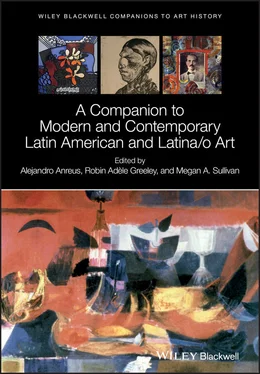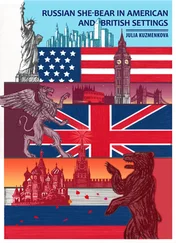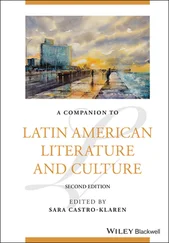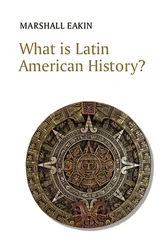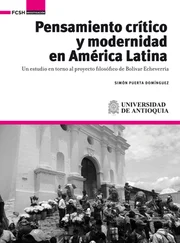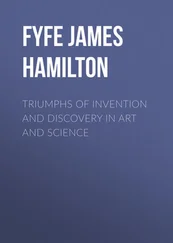Esther Gabarais Associate Professor of Romance Studies at Duke University. She is the author of several articles and catalog essays, and Errant Modernism: The Ethos of Photography in Mexico and Brazil (Duke, 2008).
Néstor García Cancliniis Professor and Researcher at the Universidad Autónoma Metropolitana in Mexico City. An Argentinean‐born anthropologist and critic, he is known for his theorization of the concept of hybridity. He is the author of numerous books, including in English translation Transforming Modernity: Popular Culture in Mexico (Texas, 1993); Hybrid Cultures: Strategies for Entering and Leaving Modernity (Minnesota, 1995); and Consumers and Citizens: Globalization and Multicultural Conflicts (Minnesota, 2001).
Andrea Giuntais an art historian and curator specializing in Latin American and contemporary art. She received her doctorate from the University of Buenos Aires, where she is a professor of Latin American and contemporary art. She is also a principal researcher at the National Council of Scientific and Technical Research (Conicet) of Argentina and a visiting professor at the University of Texas‐Austin. Among her works are Feminismo y arte latinoamericano (2018); Radical Women: Latin American Art, 1960‐1985 (with Cecilia Fajardo‐Hill); Verboamérica (2016, with Agustín Pérez Rubio); When Does Contemporary Art Begin? (2014); Escribir las imágenes (2011); Objetos mutantes (2010); Poscrisis (2009); El Guernica de Picasso: el poder de la representación (2009); and Avant‐Garde, Internationalism and Politics: Argentine Art in the Sixties (2007).
Robb Hernándezis currently Associate Professor of Latinx and American Studies at Fordham University. His current book project examines the aftereffects of the AIDS crisis in Chicano avant‐gardism of Southern California. He is cocurator of Mundos Alternos: Art and Science Fiction of the Americas , a Getty‐sponsored exhibition for Pacific Standard Time II: LA/LA (2017–2018).
Juan Ledezmais an independent scholar and curator specialized in the Russian avant‐gardes and Latin American modern art. He has organized a number of exhibitions of Latin American abstraction, including Vibration (Bundeskunsthalle, Bonn) and Gebaute Vision (Haus Konstruktiv, Zurich). He is writing a book on the shift from abstract art to conceptualism in Latin America entitled Nation and Abstraction .
Miguel A. Lópezis a writer, researcher, and codirector and chief curator of TEOR/éTica in San José, Costa Rica. His work investigates collaborative dynamics, transformations in the understanding of and engagement with politics in Latin America, and feminist rearticulations of art and culture. His writings have appeared in periodicals such as Afterall , ramona , E‐flux Journal , Art in America , and Art Journal , among others. He was member of several art collectives, artist‐run spaces and art magazines since 2003. In 2014, he cofounded the independent art space and art journal Bisagra , in Lima, Peru. In 2016 he was recipient of the Independent Vision Curatorial Award from ICI – Independent Curators International, New York. His most recent book is Robar la historia. Contrarrelatos y prácticas artísticas de oposición (Metales Pesados, 2017).
Fabiola López‐Duránis Associate Professor of Art History at Rice University. She is the author of several articles and catalog essays, and Eugenics in the Garden: Transatlantic Architecture and the Crafting of Modernity (Texas, 2018).
Natalia Majlufis former director of the Museo de Arte de Lima. Her research has focused on issues of race and nationalism in nineteenth and twentieth‐century Latin American art. She has held the Getty Curatorial Research Fellowship, the John Simon Guggenheim Memorial Fellowship, as well as fellowships at the Center for Advanced Study in the Visual Arts in Washington, DC, and the University of Cambridge.
Sérgio B. Martinsis Professor in the History Department of Pontifícia Universidade Católica do Rio de Janeiro (PUC‐RJ), and author of Constructing an Avant‐Garde: Art in Brazil: 1949–1979 (MIT, 2013). His writings on modern and contemporary Brazilian art have appeared in journals such as October , Novos Estudos , Artforum and Third Text, and in numerous exhibition catalogs such as Hélio Oiticica: To Organize Delirium (Carnegie Museum, Whitney Museum and Art Institute of Chicago, 2017); Anna Maria Maiolino (MoCA, 2017); Lygia Clark: uma retrospectiva (Itaú Cultural, 2014); and Cildo Meireles (Reina Sofia and Serralves, 2013). His current research project reexamines 1960s and 1970s art in Northern Italy through the lenses of Antonio Dias's transnational trajectory.
Cuauhtémoc Medina, who holds a PhD from the University of Essex, is Chief Curator of the Museo Universitario Arte Contemporáneo in Mexico City. His many curatorial projects include the Tate Modern's Latin American collection (2002–2008); Mexico's entry for the 53rd Venice Biennale (2009), Teresa Margolles's “What Else Could We Speak About?”; Manifesta 9 (2012); and the 12th Shanghai Biennale (2018). Since 1992, he also holds a research post at the National Autonomous University of Mexico (UNAM).
Gerardo Mosquerais an independent curator, critic, and art historian based in Havana, Cuba. He was one of the organizers of the first Havana Biennial in 1984 and remained on the curatorial team until he resigned in 1989. Since then he has been organizing exhibitions and lecturing in over seventy countries. He was adjunct curator at the New Museum of Contemporary Art, New York (1995–2009), and since 1995 an advisor to the Rijksakademie van Beeldende Kusten in Amsterdam. He is the author of several books and more than 600 articles and essays.
Chon A. Noriegais Professor in the UCLA Department of Film, Television, and Digital Media, Director of the UCLA Chicano Studies Research Center (CSRC), and adjunct curator at the Los Angeles County Museum of Art (LACMA). His publications include Shot in America: Television, the State, and the Rise of Chicano Cinema , forty book chapters and journal articles, and media policy reports, including a three‐part study of hate speech on talk radio that uses social and health science methodologies. He is coauthor of the exhibition catalogs Phantom Sightings: Art After the Chicano Movement and Home – So Different, So Appealing . Noriega's professional activities situate his research interests within a broader public framework. He is cofounder of the National Association of Latino Independent Producers (NALIP) and has served on boards for organizations focused on health disparities, support for public media, and a licensed shelter for unaccompanied immigrant and refugee minors.
Martín Oyataholds a PhD in Latin American literature (Cornell University) and a BA in philosophy (Pontificia Universidad Católica del Perú). He is the author of the forthcoming Un único pueblo: José María Arguedas y el concepto de lo andino . He lives in Chicago.
Daniel Quilesis Associate Professor of Art History and Criticism at the School of the Art Institute of Chicago. His essays and articles have appeared in Caiana Journal , Artlas Bulletin , Art Margins , Artforum , ArtNexus , Art in America , and Americas Society Quarterly .
Читать дальше
